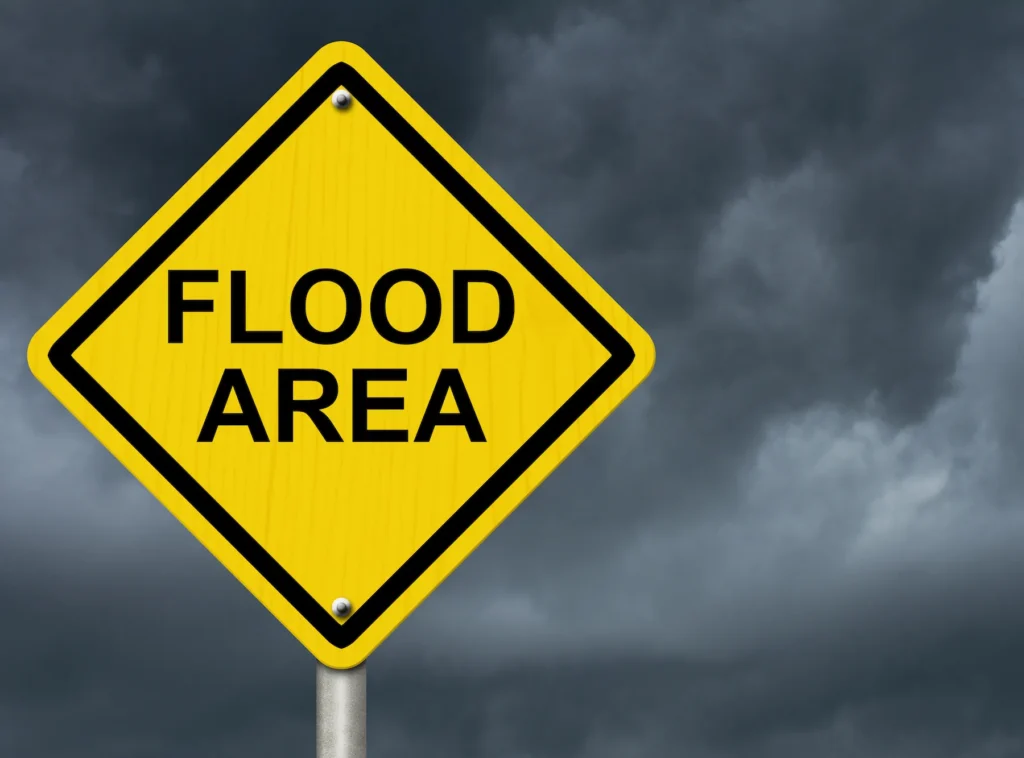Storm Jocelyn: Top tips to protect yourself and your farm
23rd January 2024
As the second storm has hit the country in just 48 hours, bringing heavy rain and strong winds, NFU Mutual has offered some advice to help farmers protect themselves and their businesses.

Storm Jocelyn brings strong winds and heavy rain in the wake of previous Storm Isha, which has seen fallen trees, branches, and debris causing damage to vehicles and machinery, as well as flooded roads and widespread power outages disrupting farm work and transport routes.
Jocelyn is the 10th named storm to hit the UK since September. Amber and yellow National Severe Weather warnings for wind have been issued covering much of the UK, together with yellow warnings for rain covering parts of western and southern Scotland and northwest England.
Met Office chief meteorologist, Steve Willington, said: “Outbreaks of heavy rain on Tuesday could bring rainfall accumulations of 15 to 20mm quite widely, with 40 to 50mm over higher ground in southwest Scotland, the Scottish Highlands and parts of northwest England.
“Wind gusts are expected to reach 55 to 65mph across northwestern Scotland, while there is potential for winds to gust to 75 to 80mph in a few places, in particular exposed parts of the Western Isles and coastal northwest Scotland early on Wednesday morning.”
The winds will ease throughout Wednesday.
Farms at risk
The UK’s rural insurer, NFU Mutual, is urging farmers to take care while working outside in wet and windy conditions in the aftermath of Storm Isha and the onset of Storm Jocelyn.
NFU Mutual rural affairs specialist, Hannah Binns, said: “Isolated rural farms, dwellings and communities are more at risk from extreme weather, and with severe gales expected to accompany the high levels of rainfall following Storm Isha and the arrival of Storm Jocelyn, we urge everyone to plan ahead and take care if working outside.
“Safety for farmers, family members and workers should always be the number one priority, and while fully understanding the pressures farmers are under, it is vital they avoid taking risks which could lead to injury or fatalities. Farmers can consider moving livestock to higher ground to protect them from flood water, as well as moving machinery and electrical items.
“For those working alone, it is important they tell someone where they will be and what time they should be back, as well as carry a charged mobile while working outside and use the What3Words app to help provide a location in the event of an emergency.
“It is also worth checking alternative fuel and power sources in case of a power cut or disruption, such as making sure generators are in working condition and able to run at full load for long periods of time.”
Dry initially in the far east, but #StormJocelyn will quickly move in from the west ⚠️
— Met Office (@metoffice) January 23, 2024
The rain becoming heavy in the north and winds increasing for all 🌧️ pic.twitter.com/DXG8nrprHi
How you can protect yourself and your farm
Before the storm:
- Stay alert for Met Office weather warnings.
- Regularly inspect your farm and keep on top of maintenance by carrying out necessary repairs to buildings, fences and walls while the weather is calm.
- Check that tiles, slates, and roofing sheets are in place, and put away any items that cannot be secured.
- Avoid being near barn doors if there are high winds.
- Make sure gutters are not leaking and are clear of leaves and other debris.
- Protect and lag water pipes in vulnerable areas, and know where the water supply is so that you can turn it off in the event of burst pipes.
- Ensure you have a good tree inspection programme in place, paying particular attention to trees bordering buildings, roads, railway lines and rights of way.
- Prepare for power cuts: have torches and batteries to hand, and make sure any generators are ready to use if required.
- Plan evacuation routes to get staff and livestock to safety in the case of extreme weather, such as floods – identify higher ground that you can move livestock to in the event of flooding.
- Have your insurer’s emergency helpline available.
During the storm:
- Do not leave the house or make journeys unless absolutely necessary.
- If you need to leave the house, avoid the sheltered side of walls when walking.
- If journeys are essential, drive slowly and carefully, staying aware of high winds on exposed roads and ice and water on the road.
- Do not attempt emergency repairs during the storm.
- Keep all building doors and windows closed.
After:
- Be aware that after a storm or weather event, power cables or powerlines may have been brought down.
- Don’t enter any buildings that could be unsafe following a storm.
- Report any damage to your insurer as soon as possible.
Check the weather here.

